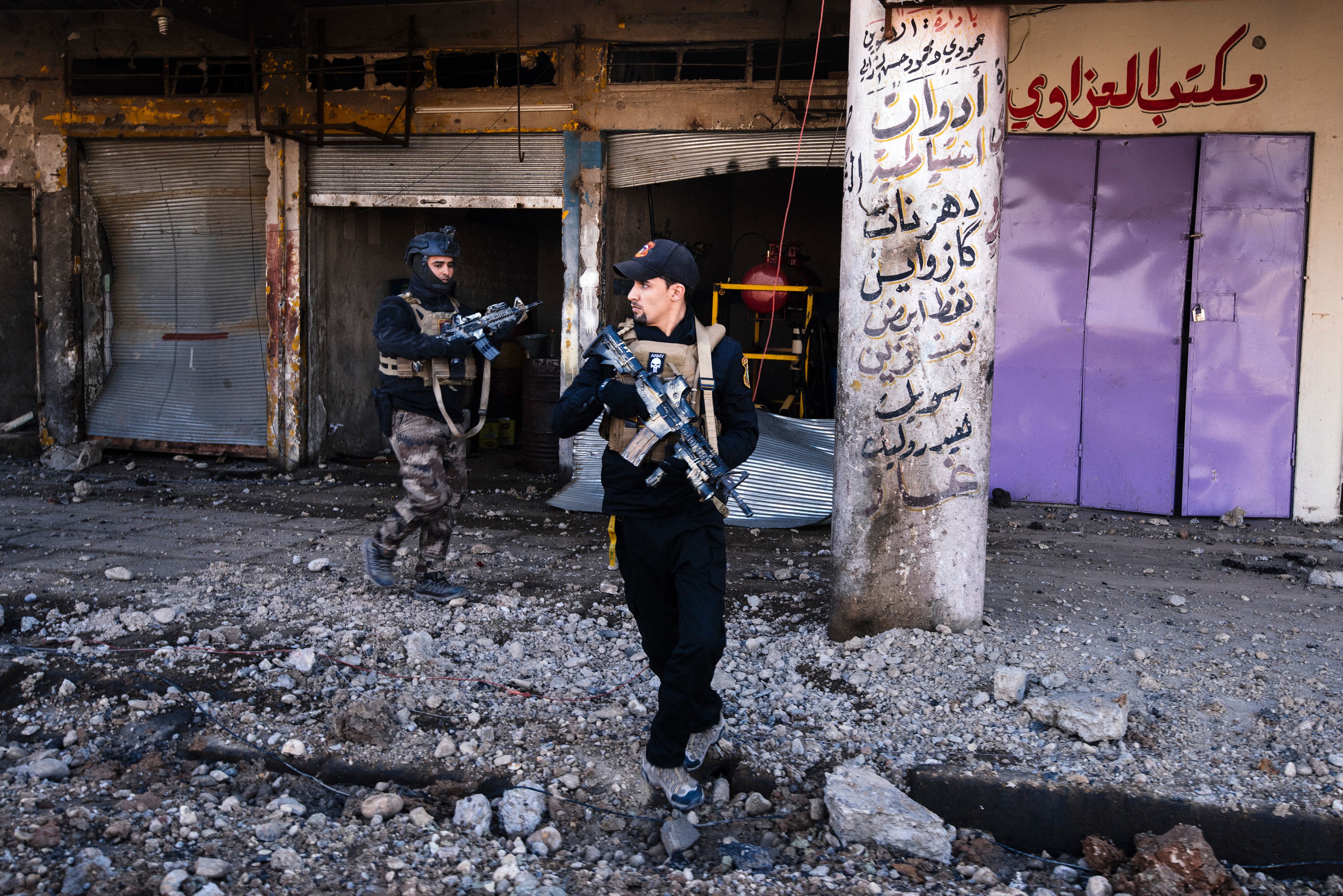Islamic State caliphate crumbles as east Mosul 'liberated'
Militants face defeat in Iraq's second-largest city after losing a quarter of their territory last year

A free daily email with the biggest news stories of the day – and the best features from TheWeek.com
You are now subscribed
Your newsletter sign-up was successful
Iraqi forces have hailed the recapture of most of eastern Mosul as a major victory in the war against Islamic State.
Local army officials announced yesterday they were in "full control" of the region, although it has since emerged that pockets of militants remain in north-eastern districts.
The mission to liberate Iraq's second-largest city, which has been under IS control since 2014, began in October, with the help of the US-led coalition, Kurdish Peshmerga fighters and Shia militias.
The Week
Escape your echo chamber. Get the facts behind the news, plus analysis from multiple perspectives.

Sign up for The Week's Free Newsletters
From our morning news briefing to a weekly Good News Newsletter, get the best of The Week delivered directly to your inbox.
From our morning news briefing to a weekly Good News Newsletter, get the best of The Week delivered directly to your inbox.
"Since the start of the year, reinforcements and new tactics have quickened the pace of the offensive," reports Deutsche Welle.
Iraqi forces are now preparing to retake western Mosul, the militants' last major urban stronghold in the country.
They still face significant challenges, not least the warren-like streets of the old city which favour the militants' combat style, the BBC says.
Human rights groups warn that the western part of the city is densely packed with civilians, who are trapped without adequate food or medical supplies.
A free daily email with the biggest news stories of the day – and the best features from TheWeek.com
Human Rights Watch said IS was "indiscriminately or deliberately killing and wounding people for refusing to be human shields".
However, there is some optimism that the next stage of the operation will be swift. Omar Lamrani, Middle East analyst for the US intelligence firm Stratfor, said: "Mosul is already effectively surrounded and IS has no choice but to fight on or surrender in the city and its surroundings."
If government forces are able to retake the entire city, it will "effectively end IS's days as a land-holding force in Iraq and deal a death blow to its claim of running a state", says AFP.
According to security and defence analysts IHS Markit, IS lost almost a quarter of its territory in 2016 and is now left with around 23,300sq-miles of land, slighly less than the size of Florida.
It has forced the militants to switch tactics, say analysts, who highlight an increase in deadly bomb blasts in Baghdad in recent months.
Reuters says the attacks show the threat from the group "may not subside" even if IS loses key towns and cities. "It will likely switch from ruling territory to pursuing insurgency tactics, seeking to reignite the sectarian tensions that fuelled its rise," it adds.
-
 6 exquisite homes with vast acreage
6 exquisite homes with vast acreageFeature Featuring an off-the-grid contemporary home in New Mexico and lakefront farmhouse in Massachusetts
-
 Film reviews: ‘Wuthering Heights,’ ‘Good Luck, Have Fun, Don’t Die,’ and ‘Sirat’
Film reviews: ‘Wuthering Heights,’ ‘Good Luck, Have Fun, Don’t Die,’ and ‘Sirat’Feature An inconvenient love torments a would-be couple, a gonzo time traveler seeks to save humanity from AI, and a father’s desperate search goes deeply sideways
-
 Political cartoons for February 16
Political cartoons for February 16Cartoons Monday’s political cartoons include President's Day, a valentine from the Epstein files, and more
-
 Epstein files topple law CEO, roil UK government
Epstein files topple law CEO, roil UK governmentSpeed Read Peter Mandelson, Britain’s former ambassador to the US, is caught up in the scandal
-
 Iran and US prepare to meet after skirmishes
Iran and US prepare to meet after skirmishesSpeed Read The incident comes amid heightened tensions in the Middle East
-
 Syria’s Kurds: abandoned by their US ally
Syria’s Kurds: abandoned by their US allyTalking Point Ahmed al-Sharaa’s lightning offensive against Syrian Kurdistan belies his promise to respect the country’s ethnic minorities
-
 Israel retrieves final hostage’s body from Gaza
Israel retrieves final hostage’s body from GazaSpeed Read The 24-year-old police officer was killed during the initial Hamas attack
-
 China’s Xi targets top general in growing purge
China’s Xi targets top general in growing purgeSpeed Read Zhang Youxia is being investigated over ‘grave violations’ of the law
-
 Syria’s Islamic State problem
Syria’s Islamic State problemIn The Spotlight Fragile security in prison camps leads to escape of IS fighters
-
 Panama and Canada are negotiating over a crucial copper mine
Panama and Canada are negotiating over a crucial copper mineIn the Spotlight Panama is set to make a final decision on the mine this summer
-
 Why Greenland’s natural resources are nearly impossible to mine
Why Greenland’s natural resources are nearly impossible to mineThe Explainer The country’s natural landscape makes the task extremely difficult